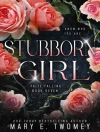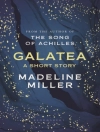Thomas Malory’s 'Le Morte d’Arthur’ stands as a seminal work in the canon of Arthurian literature, weaving a rich tapestry of chivalry, betrayal, and the quest for the Holy Grail. Written in the 15th century, this text combines various stories of King Arthur, his knights, and their noble pursuits, employing a prose style that balances lyrical elegance with narrative vigor. Its overarching themes delve deep into the ideals of knightly virtues and the tragic weight of fate, offering a complex exploration of power, loyalty, and morality in a time of tumultuous change in English history, bridging the gap between medieval romance and early modern consciousness. Thomas Malory, a knight and a prisoner, drew upon a wealth of mythic traditions and historical sources during his tumultuous life. His experiences in both hospitality and warfare, paired with his profound love for Arthurian legends, deeply informed his portrayal of these timeless characters. Malory’s work not only reflects the societal values of his time but also encapsulates his yearning for an idealized chivalric world, merging personal aspiration with collective folklore. 'Le Morte d’Arthur’ is recommended for readers seeking a profound engagement with the complexities of ideals versus reality. Its exploration of heroic narratives and moral quandaries resonates through centuries, making it essential reading for lovers of classic literature, history enthusiasts, and anyone intrigued by the intricacies of human nature.
O autorze
Sir Thomas Malory was an English writer, the author of 'Le Morte d’Arthur, ’ a seminal work in Arthurian literature. The text, completed circa 1470, is a compendium of Arthurian legends, including the adventures of King Arthur and his Knights of the Round Table, the quest for the Holy Grail, and the love affair between Sir Lancelot and Queen Guinevere. Malory’s work is one of the most complete and comprehensive treatments of the Arthurian legend in English and serves as a crucial link between the oral traditions of the Middle Ages and the literary epics of later centuries.
Malory’s personal history is somewhat obscure, with records suggesting he may have been a knight and taken prisoner during the wars of the roses. His writing style in 'Le Morte d’Arthur’ is characterized by its narrative drive and its blending of chivalric ideals with a realistic portrayal of medieval life. The language of Malory’s text, with its archaic and evocative tone, would have a lasting influence on the English literary tradition, impacting numerous authors, including Tennyson, White, and Steinbeck, who have since revisited the Arthurian legend. Today, his 'Le Morte d’Arthur’ is still highly regarded for both its historical significance in the canon of English literature and its rich contribution to the enduring mythos of King Arthur.












